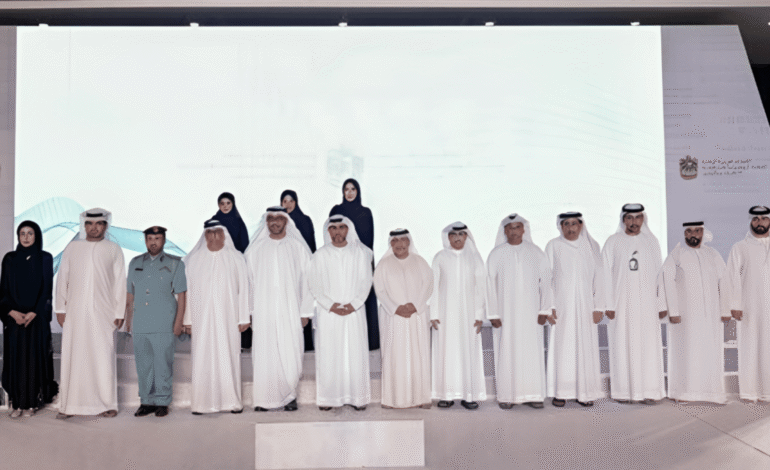UAE Unveils AI-Powered Smart System to Fight Human Trafficking

The United Arab Emirates has introduced a major digital breakthrough in the fight against human trafficking with the launch of the Smart National Referral Mechanism System. Developed by the National Committee to Combat Human Trafficking, this innovative platform uses artificial intelligence to help identify victims faster, track cases more efficiently, and bring traffickers to justice without unnecessary delays.
This system is the first of its kind in the Middle East, offering a central digital network that connects multiple government and partner organizations. It makes sure that victims get the help they need immediately, and ensures that no trafficker can escape due to bureaucratic delays or missed communications between agencies.
The new system is built around a victim-centered approach, which means the entire process from the moment a case is reported until it reaches the legal system focuses on protecting and supporting the victim at every step.
A New Chapter in Victim Protection
One of the main strengths of the Smart National Referral System is how it takes care of the victims right from the beginning. As soon as a suspected case of human trafficking is reported, the system creates a digital profile for the victim. This profile stores all important information related to the case, including identity details, case notes, and evidence, which allows relevant government departments to respond immediately.
This new method makes it easier to direct victims to emergency shelters, medical care, legal support, and psychological counseling. Everything is coordinated digitally, and no time is lost waiting for approvals or paper files to move from one office to another.
The moment a case enters the system, it alerts the right departments and triggers the necessary steps. Whether it is law enforcement needing to begin an investigation or social services providing protection, everyone is informed instantly.
Artificial Intelligence Detects Risk Early
Artificial intelligence plays a big role in this system. It is not only a storage platform, but it actively studies the information provided in each case and compares it with previous reports. This allows the system to identify patterns, detect new trends in trafficking activity, and flag suspicious cases early.
For example, if many similar cases are being reported from a specific area, or if there is a new pattern in how victims are recruited or transported, the AI system can highlight this information. It helps authorities take early action before more people are harmed.
With time, the AI technology will continue to learn and improve. As more data is collected, the system will become better at spotting danger signs and predicting possible trafficking scenarios. This forward-thinking approach allows the UAE to stay ahead of traffickers by acting before crimes occur.
Fast, Unified Communication Across All Agencies
The UAE’s new system removes delays that can happen when different departments don’t share information in time. Through this smart referral system, more than eleven government and partner agencies are now connected through a single digital platform.
This means that if a case is logged by the police, it is immediately available to health services, legal support units, and rehabilitation centers. Everyone involved in helping the victim or handling the case can see the latest updates, share new details, and move the case forward without waiting.
Because everything is recorded digitally, there is also a clear trail of all actions taken, which helps maintain transparency and accountability. Each step in the process is tracked, so it is easy to see who handled the case, what was done, and when it happened.
Real-Time Tracking and Location Sharing
An important feature of the Smart National Referral Mechanism System is its geolocation capability. This allows agencies to know the exact location of a victim when necessary, making it easier to organize emergency help, rescue missions, or transportation to a safe shelter.
The system’s location tracking tools also make sure that victims are kept safe during transitions. For instance, if a person is being moved from one facility to another, authorized agencies can follow the route in real-time and respond quickly if there is any issue.
Real-time tracking also helps prevent delays and confusion, especially when multiple teams are involved. Everyone gets the same information at the same time, which increases efficiency and security.
Paperless Process Under the Zero Bureaucracy Vision
The launch of the Smart National Referral Mechanism System is also in line with the UAE Government’s Zero Bureaucracy Program. This national program aims to reduce paperwork, eliminate unnecessary delays, and speed up government services by using digital technology.
In traditional systems, victims often had to wait for forms to be processed manually or for officials from different departments to coordinate via email or phone. This could lead to long waiting periods and confusion. But now, with the smart system, everything is done digitally from entering data to assigning tasks.
The result is a faster, more organized process that saves time for officials and gives victims the help they need without delay. It also reduces the chance of errors or miscommunication, as all data is handled through one secure system.
Why This Matters for the Region
The introduction of this system by the UAE sets a new standard for other countries in the Middle East and beyond. Human trafficking is a global problem, and this advanced system can serve as a model for other nations that want to improve their own strategies.
By using artificial intelligence, digital coordination, and a victim-focused approach, the UAE has shown how technology can improve human rights protection. The country is not only taking care of victims after the crime occurs but is now also working on preventing trafficking before it begins.
The UAE’s leadership in this area could lead to stronger international cooperation. Neighboring countries may also begin adopting similar systems, which would make it easier to track traffickers across borders and protect victims wherever they may be.
Strong Collaboration Among Government and Civil Society
Another key benefit of this system is that it allows for better collaboration between government agencies and civil society organizations. NGOs, legal support groups, and rehabilitation centers can now work more closely with official departments through one shared platform.
This unified approach removes duplication of efforts, avoids confusion, and strengthens the support system around each victim. Everyone involved in the process whether they are part of law enforcement, social services, or medical support gets access to accurate, real-time data, which improves the overall outcome of each case.
Monitoring, Evaluation, and Future Expansion
The system also includes built-in tools for monitoring and evaluation. These tools track how long it takes to respond to a case, what kind of support was provided, and how quickly victims received help.
This allows the authorities to study the data and find ways to improve the system. If one agency is taking too long to respond, or if certain types of support are not being used enough, changes can be made to fix these problems.
In the future, more features will be added to the system, such as language support for victims from different backgrounds, and options for victims to report incidents themselves through digital portals. The government is also looking at ways to connect this system with international platforms, to improve cooperation with other countries.
The Future of AI‑Driven Anti‑Trafficking in the UAE
With the launch of the Smart National Referral Mechanism System, the UAE has taken a bold and important step forward in protecting human trafficking victims and fighting this serious crime. The use of artificial intelligence, real-time communication, and central data sharing ensures that victims receive immediate support and that traffickers are identified and punished without delay.
By focusing on speed, coordination, and victim care, this system represents a new model for how governments can use technology to handle complex social issues. As more countries watch the UAE’s progress, this innovation may inspire broader changes in how the region and the world responds to the challenge of human trafficking.







